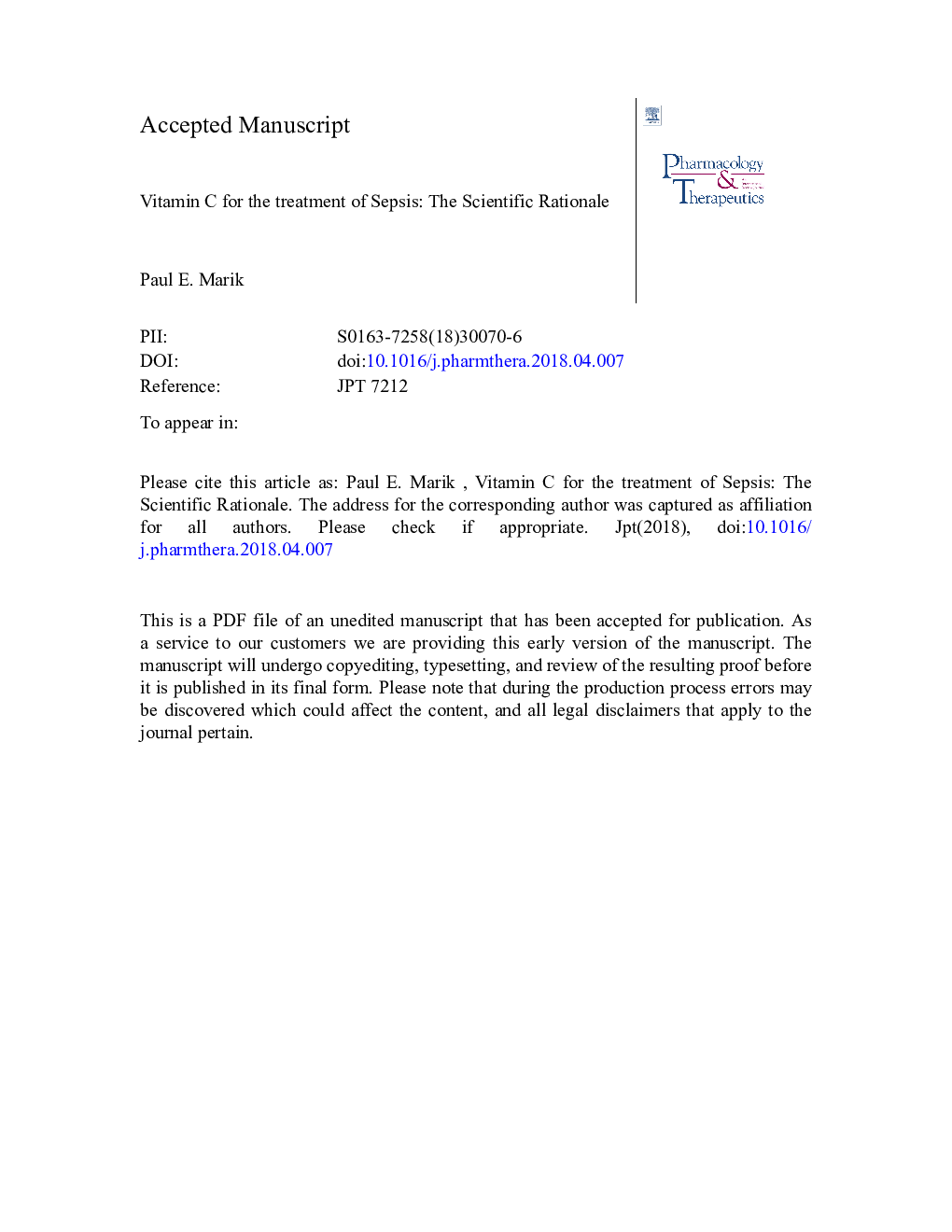| Article ID | Journal | Published Year | Pages | File Type |
|---|---|---|---|---|
| 8536769 | Pharmacology & Therapeutics | 2018 | 39 Pages |
Abstract
Most vertebrates can synthesize vitamin C with synthesis increasing during stress. Humans, however, have lost the ability to synthesize vitamin C. Vitamin C is an important anti-oxidant and an enzyme cofactor for many important biological reactions. Sepsis results in the overwhelming production of reactive oxygen species with widespread endothelial, cellular and mitochondrial injury leading to progressive organ failure. Sepsis is associated with an acute deficiency of vitamin C. In experimental sepsis models, intravenous vitamin C reduces organ injury and improves survival. In addition, emerging evidence suggests that the combination of vitamin C, corticosteroids and thiamine may act synergistically to reverse sepsis induced organ dysfunction. These findings are supported by a recent observational study. Randomized controlled trials are underway to investigate this novel approach to the treatment of sepsis.
Keywords
HMGB1L-gulono-γ-lactone oxidaseACTHSVCT1PDHTregsCRRTSVCT2tetrahydrobiopterinBH4HOClNF-κBTNFαNOSG6PDIκB kinaseNETsAscorbic acidtumor necrosis factor-αThiamineContinuous renal replacement therapyRegulatory T cellsSepsisSeptic shockAnti-oxidantgulonuclear factor kappa-Bnitric oxide synthaseadrenocorticotropic hormoneHydrocortisonevitamin Cpyruvate dehydrogenaseHigh mobility group box 1SOFAglucocorticoid receptor
Related Topics
Health Sciences
Pharmacology, Toxicology and Pharmaceutical Science
Pharmacology
Authors
Paul E. Marik,
